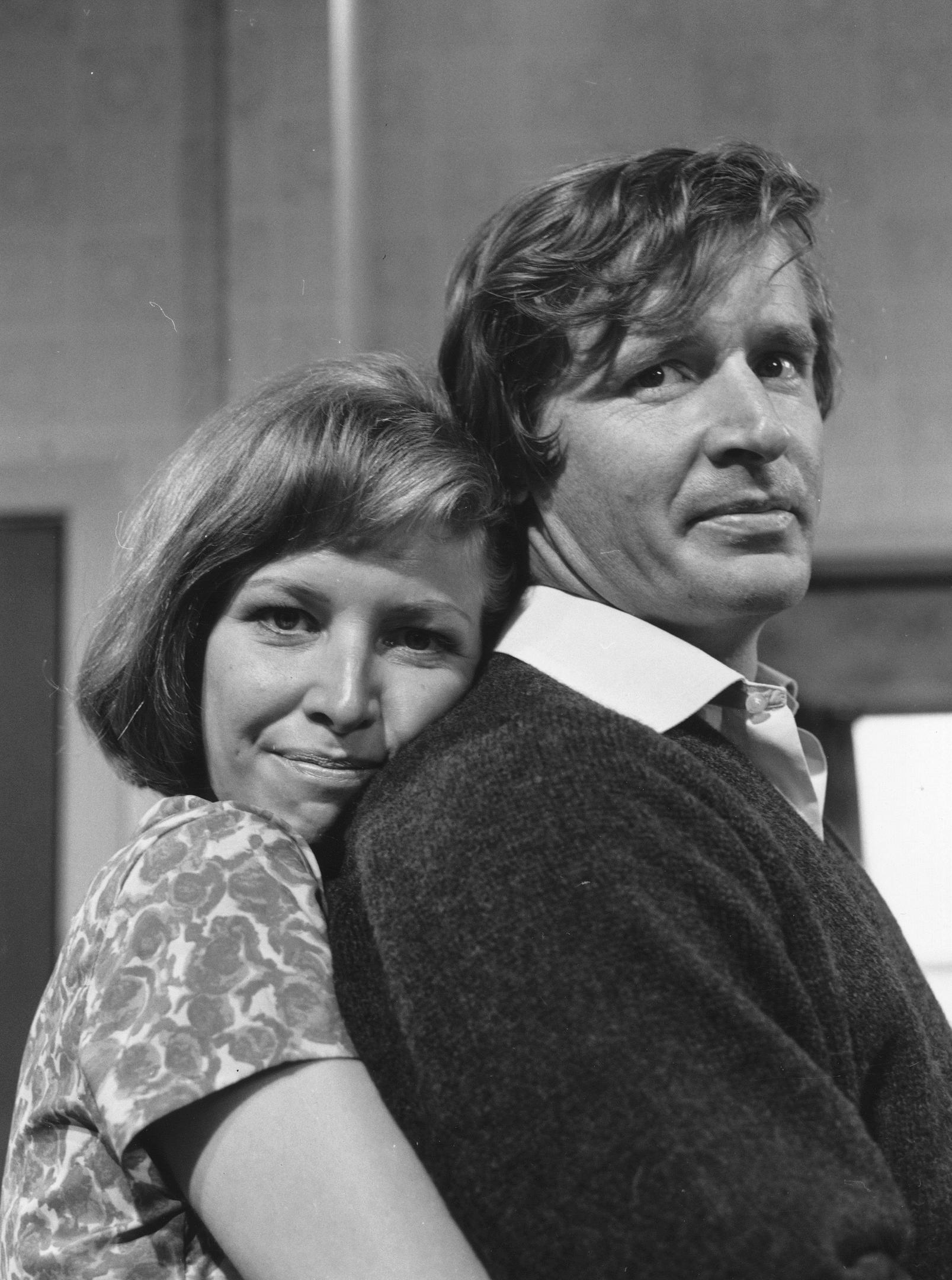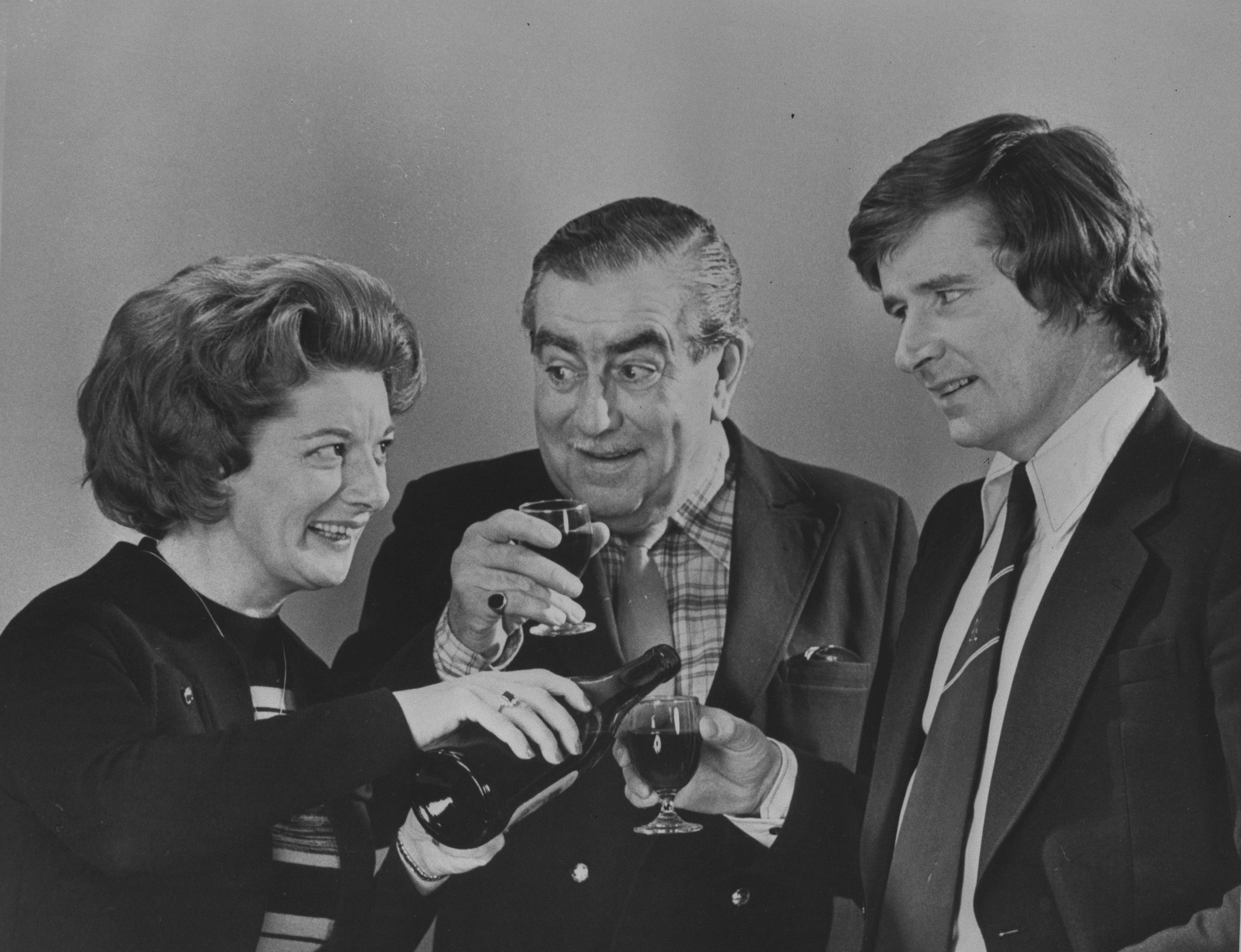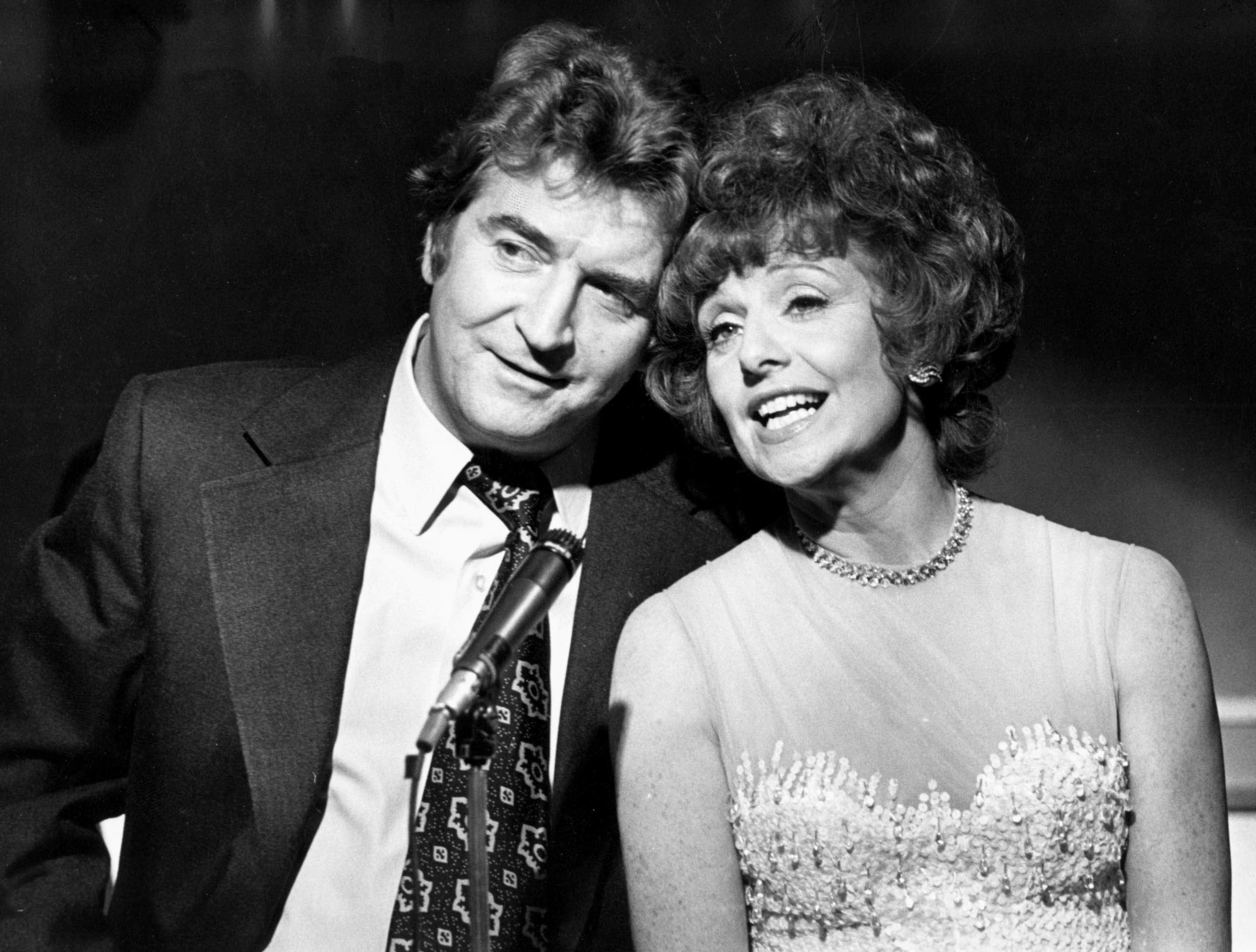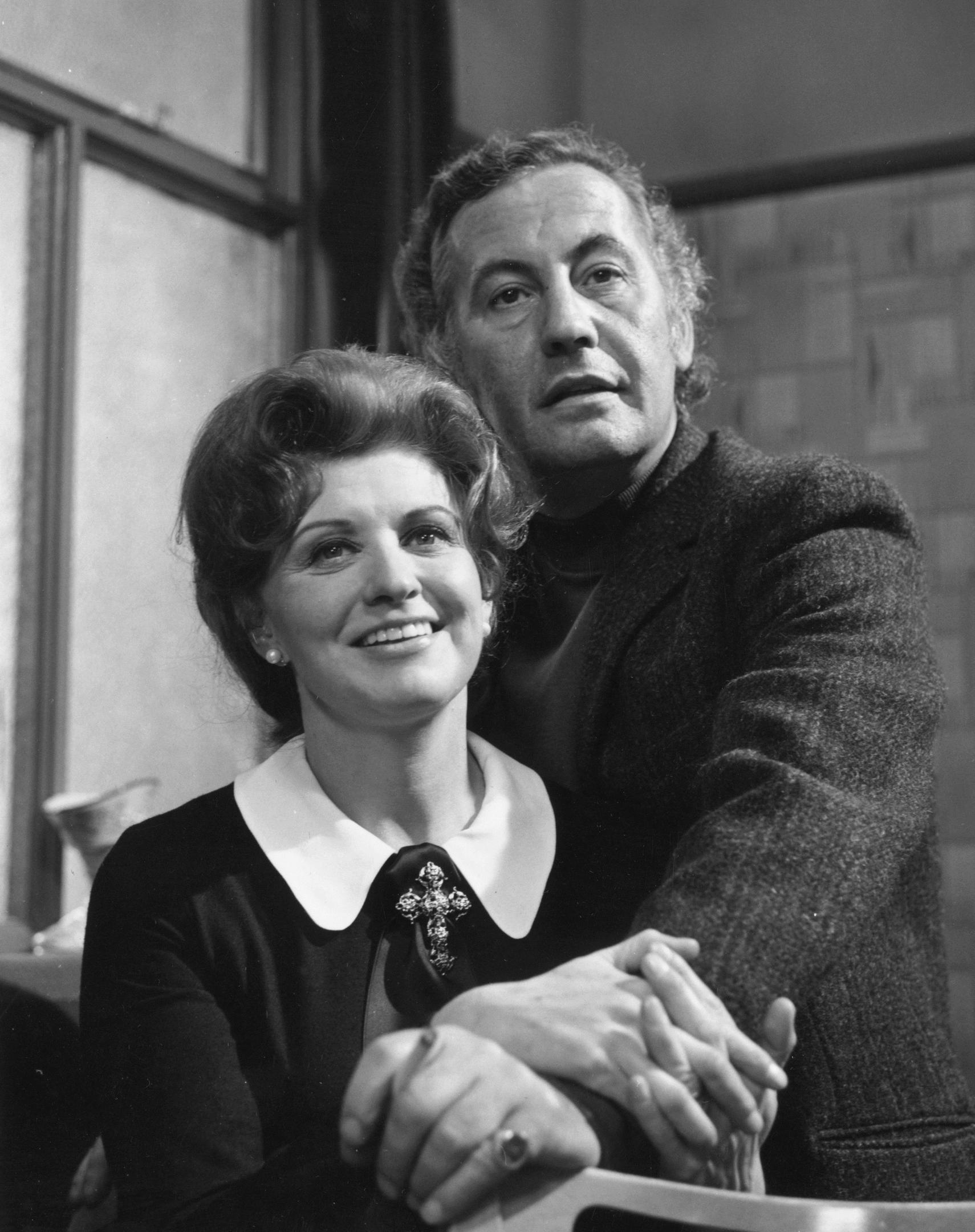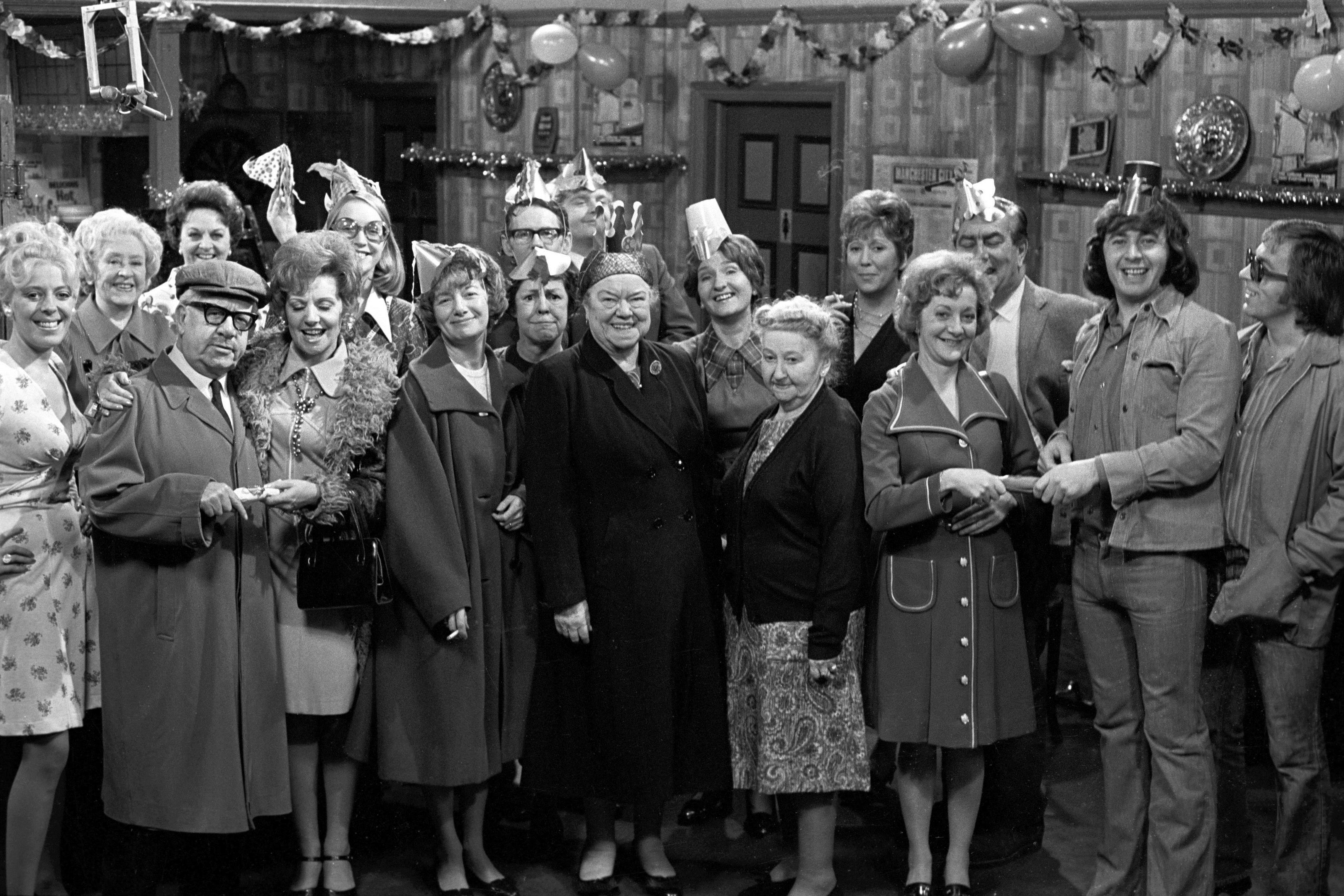
A NEW decade dawned on the residents of Coronation Street, but with it came new tragedies.
The early 70s were an especially tough time for Ken Barlow (played by William Roache).
In April, 1970, he received the news that his brother David (Alan Rothwell) had been killed in a car crash in Australia.
The next day, Ken’s nephew, Darren, who was also involved in the accident, passed away in hospital.
David’s devastated wife Irma (Sandra Gough) survived, and shortly after the crash, returned to Coronation Street.
Unfortunately, fate wasn’t being kind to Rovers landlady Annie Walker (Doris Speed), either.
She had to face life without her beloved husband, Jack (Arthur Leslie), after he suddenly died in the summer of 1970, from a heart attack.
When Annie had won her Best Landlady contest and a trip to Majorca, she had suggested that she and Jack move to the Balearic Islands to open a pub there.
However, having seen Jack’s medical report, the brewery deemed Jack too old to work in such a youth-oriented resort.
Though he would survive a coach crash in 1969 while on the way home from a trip to the Lake District — despite being one of the worst injured — he couldn’t survive his heart attack just a year later.
The Story of Coronation Street: 60s saw ‘dreary and grim’ programme become a British telly icon
More drama came just before Christmas Day of 1970, when Joe Donnelli (Shane Rimmer) killed himself after confessing to the murder of Steve Tanner (Paul Maxwell) the year before.
Steve had been pushed down the stairs and the finger of blame had initially been pointed at his estranged wife Elsie Tanner (Pat Phoenix) and loyal Len Fairclough (Peter Adamson).
Joe had confessed to Irma what he had done, but frightened her into keeping schtum.
Subsequent events led to Joe taking Irma hostage in the Corner Shop.
Though Irma managed to escape, her father, Stan (Bernard Youens), found himself in the terrifying position of being held at gunpoint and forced to sing Silent Night with Joe.
Eventually, Joe turned the gun on himself and Stan got out unscathed, albeit extremely shaken up.
The summer of 1970 brought joy for Elsie, who married Alan Howard (Alan Browning).
Businessman Alan had made her manageress at his salon and had never hidden the fact that he was attracted to her.
Although the feeling wasn’t initially reciprocated, Elsie eventually fell for him.
After the wedding, however, Elsie discovered that Alan was up to his ears in debt.
He was also an alcoholic, and their marriage was not strong enough to survive their troubles.
After some time living away together in Newcastle, Elsie returned to the Street, in 1976, bringing news that they had separated.
Ken and Valerie Barlow (Anne Reid) were another couple who hadn’t always been the happiest, but they had been planning to move to Jamaica in 1971, with Ken having been offered a teaching job there.
Fate had other plans, however, and Valerie was electrocuted while getting ready for their going-away party in the Rovers — where else?
She had plugged her hairdryer into the socket, but unfortunately, it was a faulty outlet, and it gave her a shock.
She fell, and in the process, knocked an electric heater into a packing crate, which then led to the place going up in flames.
It was too late to save Valerie by the time that help arrived.
Another unforgettable Street death came in 1978 when Ernest Bishop (Stephen Hancock) was shot dead during a robbery at Baldwin’s Casuals, the denim factory run by Londoner Mike Baldwin (Johnny Briggs).
Married in 1972, photographer Ernest and shop assistant Emily Nugent (Eileen Derbyshire) were a great match and were very happy together — usually a sign that things will eventually take a turn for the worse!
Two men, armed with a shotgun, demanded that Ernie, working as a wages clerk, hand over the petty cash, which he did.
However, at that point, Mike came into the office and bumped into one of the robbers, causing the gun to go off and shoot Ernie in the chest, and he died while he was on the operating table.
Emily never really got over his death, but she let single mum Deirdre Langton (Anne Kirkbride) and her young daughter Tracy move in with her following the former’s split from husband Ray, and that helped to keep her mind on other things.
Ah, yes, Tracy! The same one who would eventually go on to sell her own child. The one who would end up in jail for murdering her boyfriend. The one whose actions caused a fire in Carla’s flat. The one . . . I think you get the idea.
In her childhood, however, Tracy was actually quite a sensitive child.
Living with Emily meant that the pair formed an attachment, with Emily unable to have children of her own and doting on Tracy.
There was panic in 1979 when Deirdre had left Tracy in her buggy outside the Rovers while she went in to have a quick word with Annie Walker.
Whilst Deirdre was inside, a passing lorry went out of control and crashed into the pub.
Deirdre feared the worst when she saw Tracy’s doll amongst the rubble and convinced herself that her little girl was dead and was absolutely distraught.
Once firefighters had cleared the rubble, though, they revealed that there was no sign of Tracy or even of her buggy.
What had actually happened was that Sally Norton, a woman who had been on the same maternity ward as Deirdre — and later given her child away for adoption — had taken Tracy.
Deirdre told Sally — who was charged with child abduction — that she never wanted to see her again.
Back in the 70s, Emily and Deirdre formed the Coronation Street Secretarial Bureau together, with Emily bookkeeping and Deirdre typing.
Emily became involved with one of their clients, Arnold Swain, and married him, but she later discovered that he already had a wife when he married Emily, meaning her second marriage was void.
However, while Emily and Deirdre had been unlucky in love with Arnold and Ray, Hilda and Stan Ogden celebrated their 30th wedding anniversary in 1973.
It was quite a feat for a soap couple — but then Stan and Hilda (Jean Alexander) do still have legendary status in the history of Coronation Street.
For many people, Hilda was the symbol of the typical working-class woman of the era — all curlers, headscarf and apron — and people felt they could very much relate to her.
Ken Barlow may have turned his nose up at her, with his notions of being a social climber.
However, he had bigger fish to fry in the 70s after he lost a second — albeit estranged wife —Janet (Judith Barker) in 1977.
He had wed Janet in 1973, but cracks had started to show when Ken spoke of wanting to have his twins move to live with them.
Peter and Susan had been living with their grandparents in Scotland since their mother’s death, and Ken wanted to find someone else to settle down with so that he could create a happy, homely environment for his kids.
Janet, however, apparently had other plans.
Having cold feet at the prospect of being a stepmum, she went behind Ken’s back to find out about having the kids sent to boarding school.
In the actual event, the twins were happy in Glasgow and chose to stay there, but the problems with Ken and Janet were bigger than just parenting issues.
Following a period of estrangement, in 1977, during which Janet had asked Ken for a divorce, she turned up at Ken’s home and asked him to take her back.
He rejected her, but was enough of a gentleman to offer her his bed for the evening while he slept on the couch.
The following morning, he found Janet dead, having taken an overdose of some pills.
The Kabin made its first “appearance” in the 70s, being managed by Rita Littlewood (Barbara Knox).
The venture was actually thanks to Len Fairclough, who bought the business.
It was soon clear that Rita was going to need some assistance to run The Kabin — enter Mavis Riley (Thelma Barlow), who would go on to work with Rita for more than 25 years.
The Kabin would eventually change premises — to actually be on Coronation Street.
By and large, it is the same business it began as.
The only real change over the years has been the addition — and subsequent removal — of an integrated post office along the way.
Rita would marry Len in 1977 and they would be mostly happy the majority of the time, although like most couples, had their share of ups and downs and various dramas.
One memorable argument came after Len spent an evening in a police cell after being arrested for being drunk and disorderly at Alf Roberts’ stag night.
He barely made it to the wedding on time to perform his duties as best man when Alf (Bryan Mosley) married Renee Bradshaw (Madge Hindle).
In 1979, Coronation Street was absent from our screens when it was taken off air for 10 weeks, due to an ITV strike.
When it came back, Julie Goodyear and Peter Adamson (better known as Bet Lynch and Len Fairclough) provided a pre-programme summary to refresh viewers’ minds of what the storylines were and what our favourite characters had been up to.
Despite the fact that there has been much mention of marriage and death in this feature, don’t by any means think that the list is exhaustive — there were many more that we just didn’t have the space for.
However, we probably should mention Weatherfield’s own Elizabeth Taylor — in terms of multiple trips down the aisle — as 1979 saw Gail Potter (Helen Worth) wed Brian Tilsley (Christopher Quinten).
Marrying Brian with just over a month of the 70s left, Gail would have been entering the 80s with a very positive frame of mind.
Little did she know what drama the next decade would have in store for her . . .

Enjoy the convenience of having The Sunday Post delivered as a digital ePaper straight to your smartphone, tablet or computer.
Subscribe for only £5.49 a month and enjoy all the benefits of the printed paper as a digital replica.
Subscribe